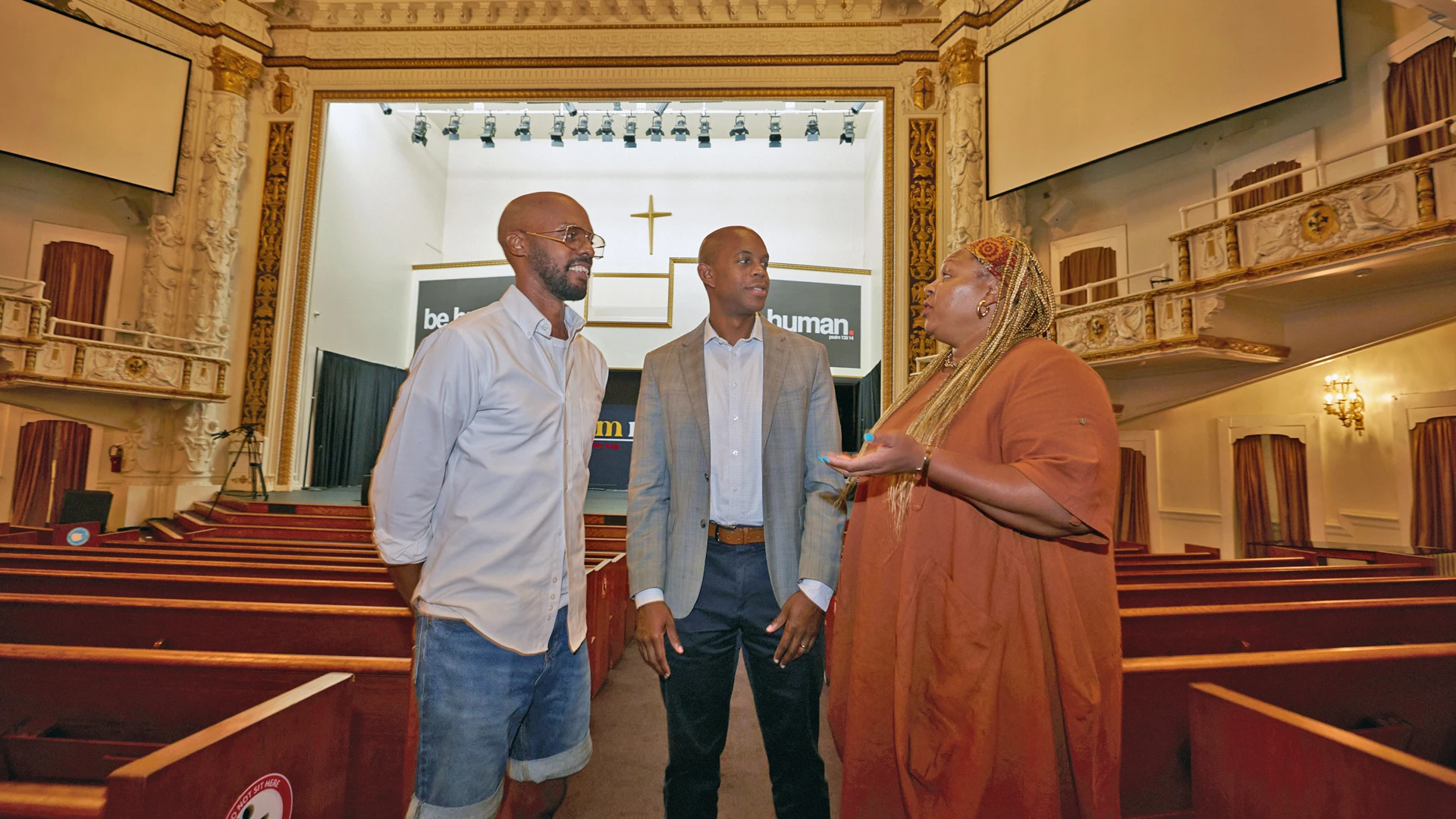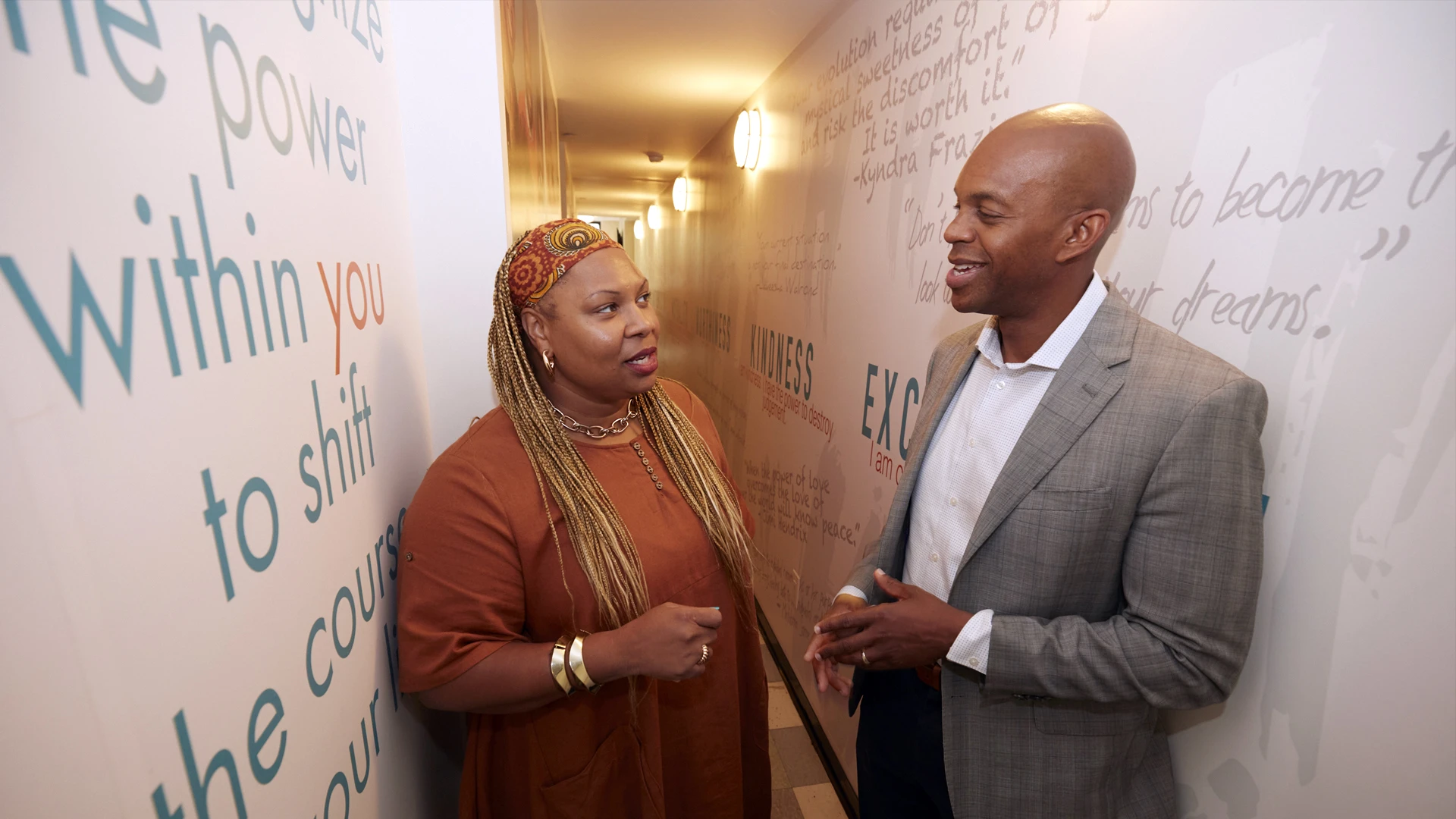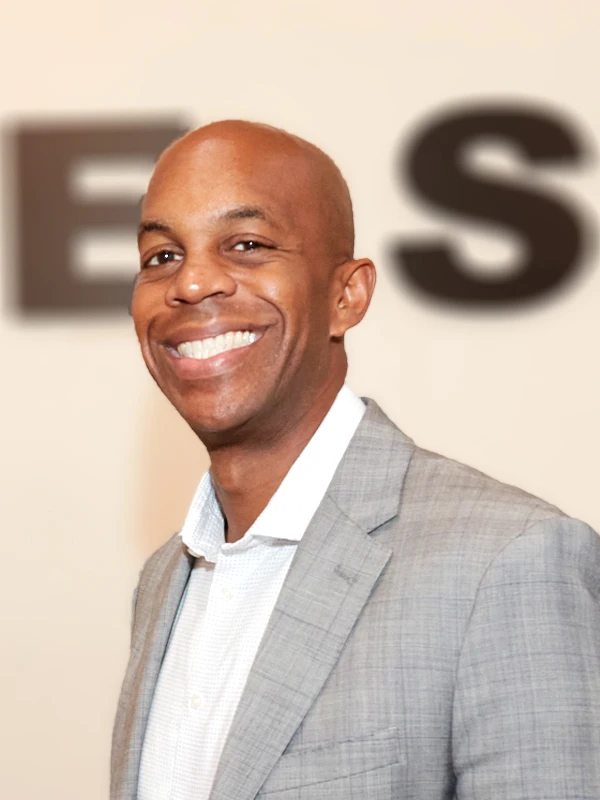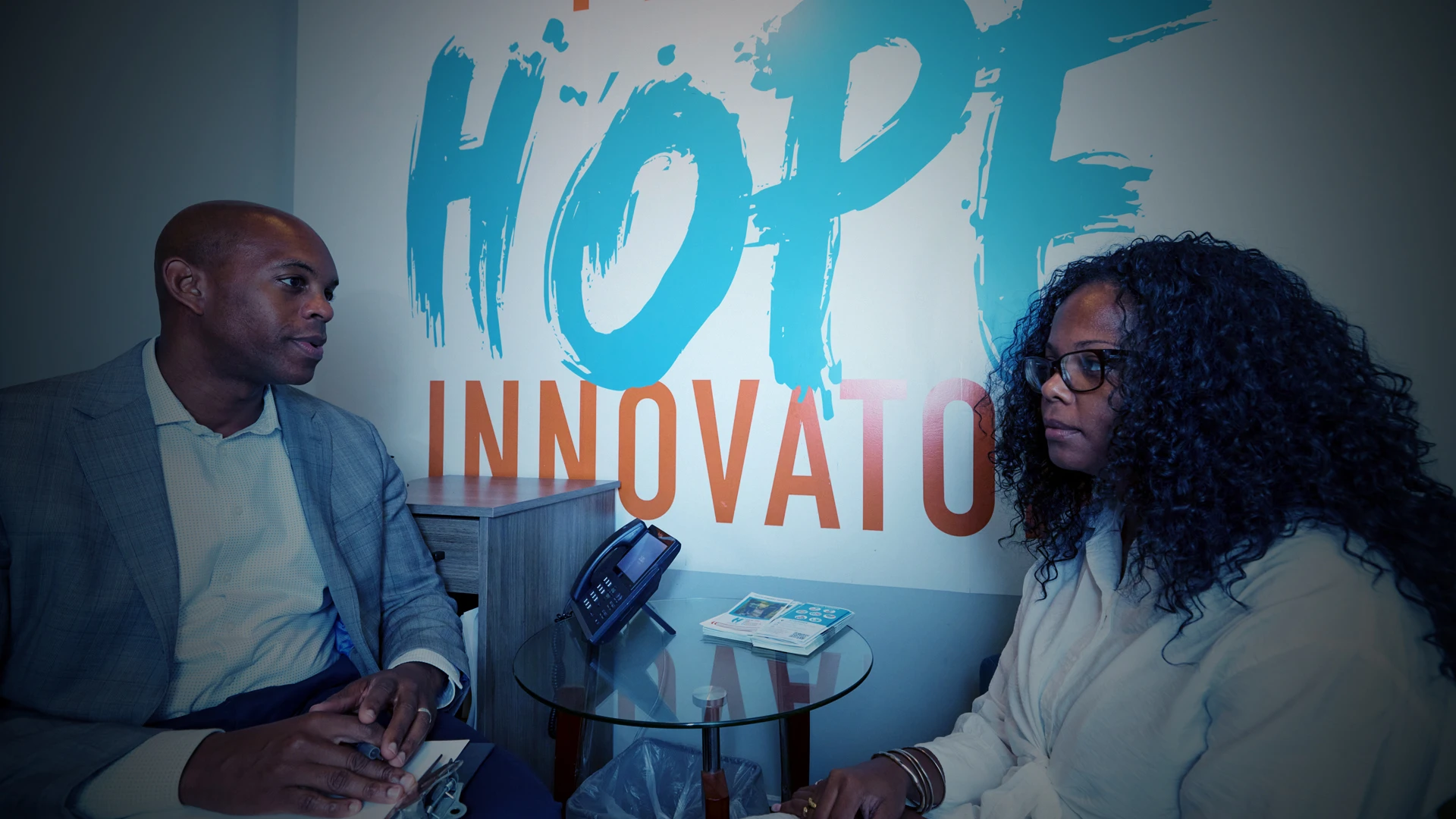For years, the rate of mental illness treatment among Black and Latinx people has remained disconcertingly low. Many barriers have contributed this trend, including lack of access to culturally sensitive care, costs, and a legacy of poor outcomes that have led to distrust among these communities.
These are the barriers that Mount Sinai’s Sidney Hankerson, MD, MBA, is seeking to break down. Through Community Partnered Participatory Research, a documented model of community engagement developed by Kenneth Wells, MD, MPH, Professor of Psychiatry and Biobehavioral Sciences at the David Geffen School of Medicine and Professor of Health Services at the UCLA School of Public Health; and Loretta Jones, MD, ThD, Assistant Professor at Charles R. Drew University of Medicine and Science, he is exploring opportunities to partner with community-based organizations to deliver mental wellness services and supports to Black and Latinx people in their neighborhoods.
The program involves a “community coalition,” an advisory board consisting of clinicians, researchers, policymakers, and people who have experience with mental health challenges. “They will serve as boots on the ground for access to a whole host of psychiatric services,” says Dr. Hankerson, Associate Professor and Vice Chair for Community Engagement in the Department of Psychiatry at the Icahn School of Medicine at Mount Sinai, and Director of Mental Health Equity Research at Mount Sinai’s Institute for Health Equity Research.

Sidney Hankerson, MD, MBA (center), with Deacon Darnell McLaurin, a certified mental health coach (left), and Lena L. Green, DSW, LCSW (right), at First Corinthian Baptist Church.
One key stakeholder is the church, which has historically played a foundational role in Black communities. Dr. Hankerson has partnered with First Corinthian Baptist Church and its pastor, Michael Walrond Jr., on the Healing On Purpose and Evolving (HOPE) Center, a clinic that has been delivering therapeutic services to the community of Harlem since 2016. It offers 10 free evidence-based psychotherapy sessions to approximately 200 individuals each year, as well as affinity group therapy sessions, meeting the specific needs of diverse demographics such as LGBTQ+ community members and pregnant mothers. The HOPE Center also delivers a suicide-prevention intervention for Black and Latinx teenagers in Harlem and conducts a bi-annual Wellness Fair that gives access to a myriad of therapeutic resources such as yoga, arts, and mindfulness meditation. Last year, it reached more than 20,000 people worldwide through a virtual wellness initiative.
Dr. Hankerson is looking to integrate Mount Sinai psychiatry residents into the clinic to provide direct psychiatric services to low-income New York City residents free of charge. “In doing so, we can train the next generation of psychiatrists in a curriculum that talks about the impact of structural racism on psychiatric care delivery and show them how to engage different community-based entities, all of which we hope will contribute to improved clinical outcomes,” he says. He is working with the American Psychiatric Association Foundation to replicate this community-based engagement model for training and embedding psychiatry residents nationwide.
Engaging Community Partners
However, Dr. Hankerson acknowledges that there are limits to what can be achieved through faith-based engagement. For example, houses of worship are not always welcoming of the LGBTQ+ community or individuals with mental illness, and there are individuals who are not religious. Thus, he is exploring opportunities to engage other entities and institutions such as barbershops, schools, and sports leagues.
“The first step is having informal and formal meetings with key stakeholders and leaders in these organizations,” Dr. Hankerson says. “These meetings create an opportunity to ask them to recommend other individuals whom we should engage.”

Dr. Sidney Hankerson with Lena Green, DSW, LCSW, at the Healing On Purpose and Evolving (HOPE) Center in Harlem.
Through this outreach process, Dr. Hankerson hopes to make progress in addressing another pressing concern: mental health outcomes among young people. With funding from the American Foundation for Suicide Prevention (AFSP), he has launched a church-based youth suicide-prevention initiative. The AFSP grant extends Mount Sinai’s reach in New York State through a collaboration with the New York State Office of Mental Health; Sherry Molock, PhD, from George Washington University; and Peter Wyman, PhD, from the University of Rochester.
Dr. Hankerson is looking at sports leagues, specifically basketball and tennis, as a way to reach youth, and is cultivating partnerships with community colleges and universities to connect with college-age students. Additionally, he is serving as a consultant with the New York State Office of Mental Health to address stigma and deliver support through community engagement
“I believe the field of psychiatry can benefit from embracing the principles of community engagement, whether that is basic science, clinical services, or education and training,” Dr. Hankerson says. “My vision is to integrate those principles across the department and make Mount Sinai the preeminent location for community-informed psychiatric practice and research.”
Featured

Sidney Hankerson, MD, MBA
Director of Mental Health Equity Research at the Institute for Health Equity Research; Vice Chair for Community Engagement
